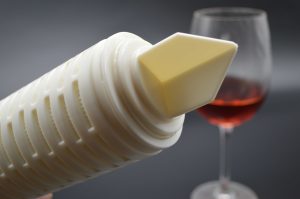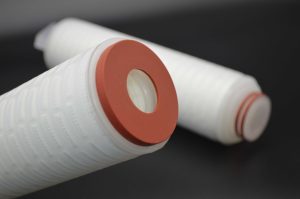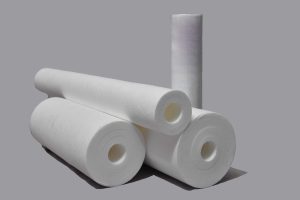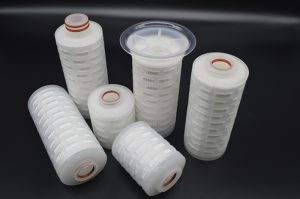Dairy

Reliable barriers in the dairy production process are important for product safety and brand protection.They prevent pathogens from entering areas where products may come into contact with foreign substances, microbial contamination or process residues. For example, filtering water, vapours and gases with particle filtration is used to eliminate the risk of contamination by other external factors in the production process.
Proper filtration is essential in the dairy industry to ensure the highest quality milk makes it to milk-drinkers all over the country. It not only ensures a superior product, but milk filtration can also help identify health concerns in cattle, which can greatly help dairy farms act promptly for the benefit of their animals and their bottom line. Effective filtration is also beneficial because it will help save money on milking equipment by protecting it from harmful particulates.
There are a variety of methods that are used for milk filtration. The common goal of all methods is to separate various substances from one another. In the dairy industry, that means separating unwanted particulates from the milk. There arefour different membrane filtration processes that are typically used to filter milk. The processes are:
• Reverse Osmosis – This process provides the tightest membrane possible in liquid separation. That means that only water can pass through the membrane while all other material (dissolved and suspended) is removed.
•Nano-filtration – This process removes a range of different minerals from liquid, letting only the liquid and specific monovalent ions to pass through the membrane.
•Ultra-filtration – This process separates skim milk (also called the feed) into two different streams, which allows water, salts, lactose, and acids to pass through the membrane in either direction while keeping (and concentrating) proteins and fat.
•Micro-filtration – This process uses the most open kind of membrane. It's used to remove spores, bacteria, and fat globules from the liquid and also for fractionation of skim milk.
Milk filtration that is done on-farm may also use a mechanical filter to remove any solid particles from the raw milk. These solid particles may include manure, dirt, straw, hair, insect, and clots, and they are filtered out before the milk reaches the bulk milk tank
Related products
- ORIENTFILTR TECHNOLOGY CO.,LTD
- No. 688, Xingfu Road, Chongchuan District, Nantong, Jiangsu, China. 226007
- Email: info@orientfiltr.com
- Phone: 800-293-3858




